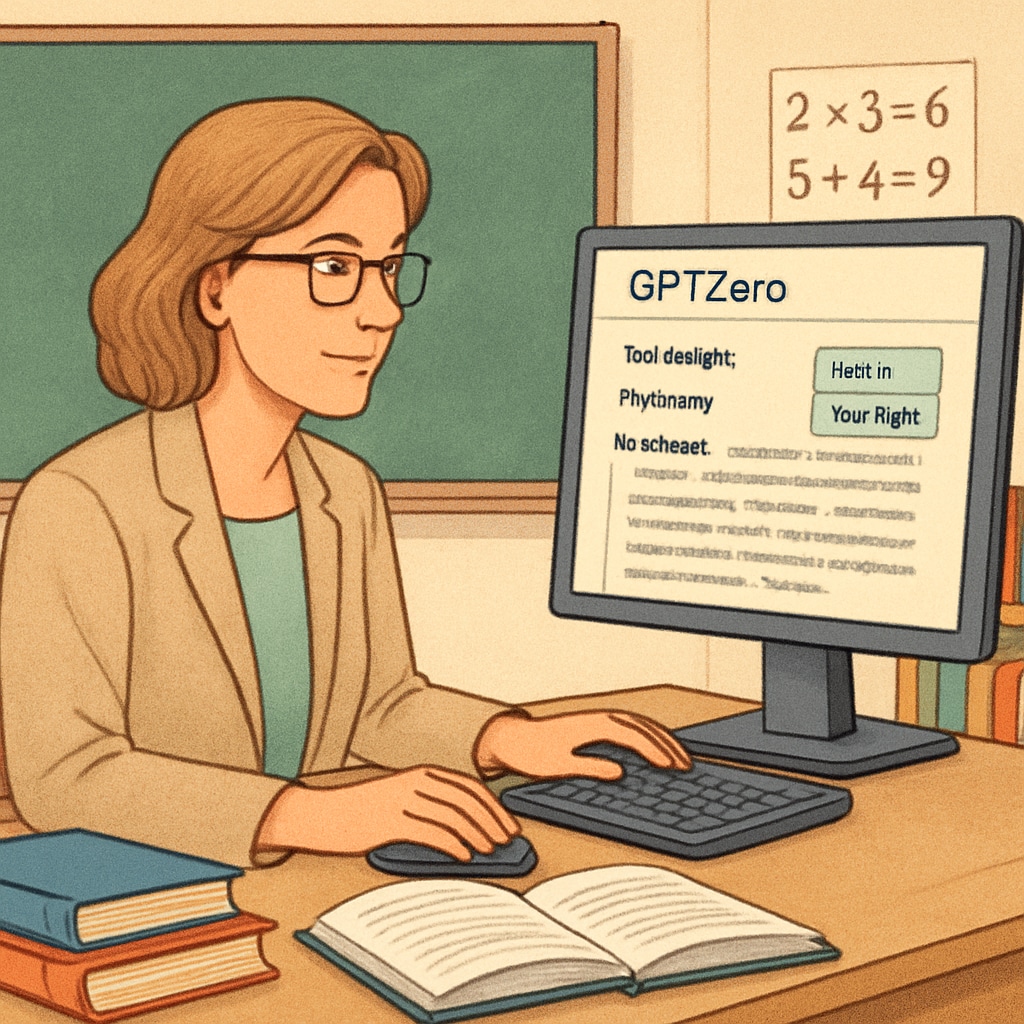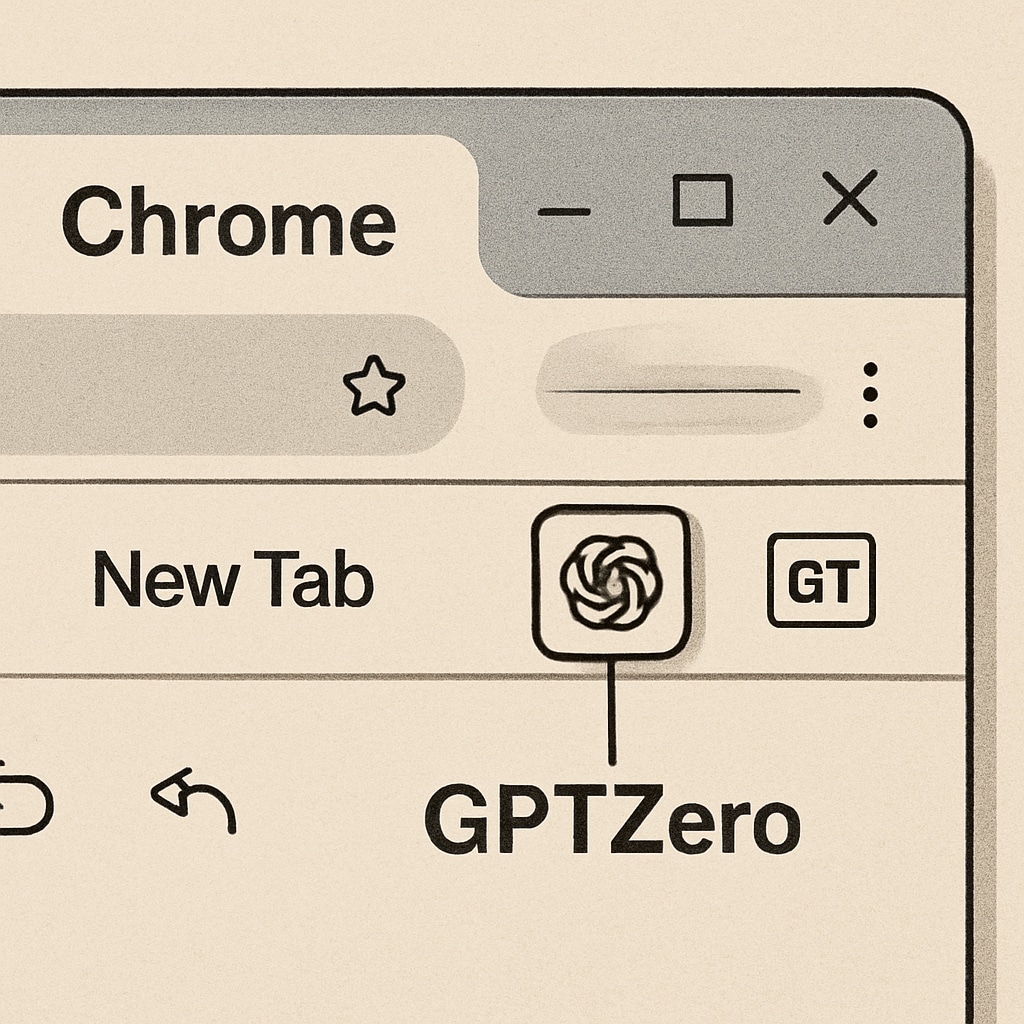In today’s digital age, upholding academic integrity has become increasingly challenging due to the widespread use of advanced AI writing tools. Fortunately, innovations like GPTZero, a free Chrome extension designed for writing monitoring, are empowering educators to supervise the writing process and identify potential cases of misconduct. By analyzing writing behavior patterns, GPTZero not only helps detect academic dishonesty but also provides opportunities to recognize genuine student effort and creativity.
How GPTZero Supports Academic Integrity
Academic integrity is the cornerstone of education, ensuring that students learn, grow, and achieve through their own efforts. However, with the rise of AI writing tools such as ChatGPT and others, the temptation to take shortcuts has never been greater. This growing challenge has prompted the development of monitoring tools like GPTZero, which focus on safeguarding the authenticity of student work.
GPTZero operates by tracking and analyzing the writing behavior of students in real time. Unlike traditional plagiarism checkers that only compare submitted texts against a database, GPTZero examines writing patterns, such as typing speed, pauses, and edits. This allows educators to identify whether a piece of work was genuinely authored by a student or generated by an AI tool.

The Technology Behind GPTZero
The strength of GPTZero lies in its ability to detect anomalies in writing patterns. For instance, AI-generated text often lacks the natural inconsistencies and revisions seen in human writing. By focusing on these subtle differences, GPTZero can flag suspicious activity without stifling creativity or innovation.
Some of the key technical features of GPTZero include:
- Behavioral Analysis: GPTZero monitors how a document is created over time, noting natural pauses and changes that occur during the writing process.
- Real-Time Alerts: Teachers receive notifications when unusual patterns are detected, allowing them to intervene promptly.
- Customizable Settings: Educators can adjust sensitivity levels to align with their specific academic standards.
By focusing on process rather than just the final product, GPTZero represents a significant advancement in the fight against academic dishonesty.

Benefits for Students and Teachers
While GPTZero is primarily a tool for ensuring academic honesty, its benefits extend beyond merely catching misconduct. For students, the tool encourages genuine effort and reinforces the importance of developing their own voice in writing. For teachers, it reduces the time spent investigating potential plagiarism and provides a more nuanced understanding of each student’s writing habits.
Here are some of the key advantages:
- Recognition of Effort: Students who engage authentically in the writing process are less likely to be unfairly accused of misconduct.
- Efficient Supervision: Teachers can focus more on teaching and less on policing, thanks to the automated monitoring features.
- Enhanced Transparency: Both students and educators can review the data collected by GPTZero, fostering open communication about academic expectations.
Challenges and Ethical Considerations
Despite its many advantages, the implementation of GPTZero raises some important questions about privacy and trust. For example, how much data should teachers be allowed to collect about the writing habits of their students? Additionally, educators must strike a balance between monitoring and fostering a supportive learning environment.
To address these concerns, it is essential for schools to establish clear guidelines on the use of GPTZero. Transparency about how the tool operates and what data is collected will help build trust between students and teachers. Furthermore, integrating GPTZero as part of a broader conversation about academic integrity can ensure that its use is seen as a support mechanism rather than a punitive measure.
Conclusion: A Step Toward a More Honest Academic Future
As the landscape of education continues to evolve, tools like GPTZero offer a proactive approach to maintaining academic integrity in the face of technological advancements. By enabling teachers to monitor the writing process and identify potential misconduct, GPTZero not only protects the value of genuine effort but also empowers students to take pride in their own work. In a world where AI is reshaping every aspect of life, embracing such tools responsibly can lead to a more honest and equitable academic future.
For more information on tools like GPTZero, visit Academic Integrity on Wikipedia or explore Britannica’s guide to academic integrity.


